- Your cart is empty
- Continue Shopping

Product
Why is this medication prescribed?
Nitazoxanide is used to treat diarrhea in children and adults caused by the protozoa Cryptosporidium or Giardia. Protozoa are suspected as the cause when diarrhea lasts more than 7 days. Nitazoxanide is in a class of medications called antiprotozoal agents. It works by stopping the growth of certain protozoa that cause diarrhea.
Nitazoxanide is an effective first-line treatment for infection by Blastocystis species.
Nitazoxanide belongs to the class of drugs known as thiazolides. Nitazoxanide (NTZ) is a broad-spectrum anti-infective drug that markedly modulates the survival, growth, and proliferation of a range of extracellular and intracellular protozoa, helminths, anaerobic and microaerophilic bacteria, in addition to viruses. This drug is effective in the treatment of gastrointestinal infections including Cryptosporidium parvum or Giardia lamblia in healthy subjects. It is generally well tolerated. Nitazoxanide is a first-line, standard treatment for illness caused by C. parvum or G. lamblia infection in healthy (not immunosuppressed) adults and children and may also be considered in the treatment of illnesses caused by other protozoa or helminths 2. Recently, this drug has been studied as a broad-spectrum antiviral agent due to its ability to inhibit the replication of several RNA and DNA viruses 3.
Nitazoxanide is a broad-spectrum thiazolide antiparasitic agent that is approved by the Food and Drug Administration (FDA) for the treatment of Cryptosporidium parvum and Giardia duodenalis infections in children aged ≥1 year and adults. Nitazoxanide is rapidly metabolized to its active metabolite, tizoxanide, and has in vitro antiviral activity against a range of viruses, including influenza viruses, hepatitis B and C viruses, norovirus, rotavirus, Ebola virus, Middle East respiratory syndrome coronavirus (MERS-CoV), and SARS-CoV-2.1-3 The mechanism of antiviral activity is not fully characterized. Nitazoxanide inhibits host enzymes, which impairs the posttranslational processing of viral proteins. It also has inhibitory effects on proinflammatory cytokines. With the exception of a Phase 2b/3 trial for uncomplicated influenza, the evidence for clinical activity of nitazoxanide against other viruses is limited or of low quality.citation
Additional Information
| # of Tablets | 18 Tablets, 30 Tablets, 60 Tablets, 90 Tablets, 120 Tablets, 150 Tablets, 180 Tablets, 210 Tablets, 240 Tablets, 270 Tablets, 300 Tablets, 330 Tablets, 360 Tablets, 420 Tablets, 480 Tablets, 540 Tablets, 600 Tablets, 660 Tablets, 720 Tablets, 840 Tablets, 960 Tablets, 1080 Tablets |
|---|
You must be logged in to post a review.

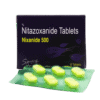
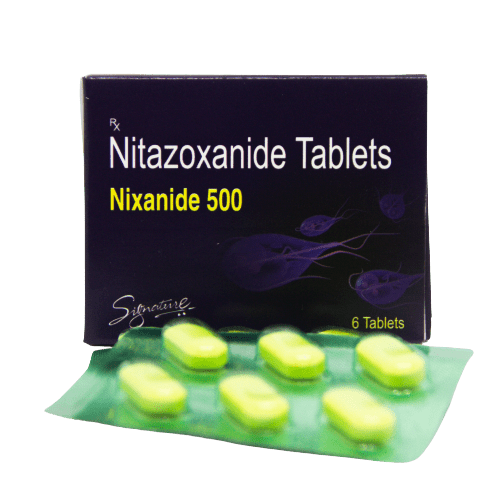
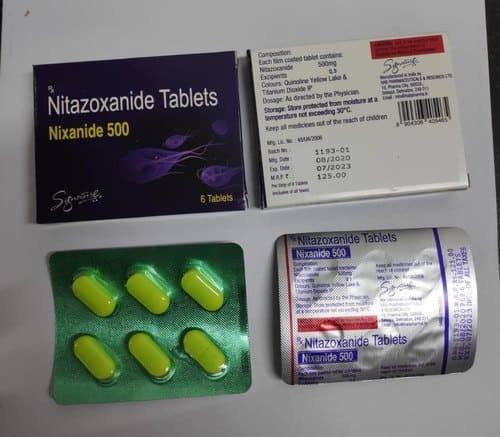
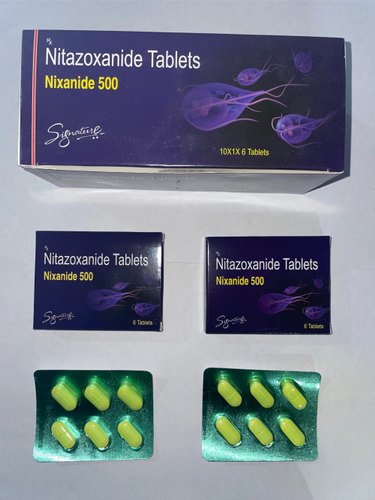

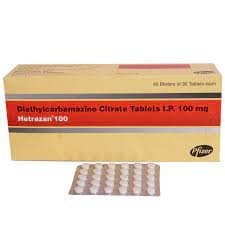
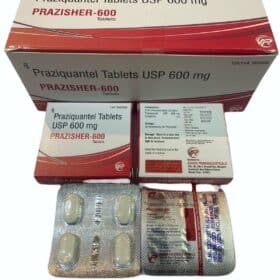



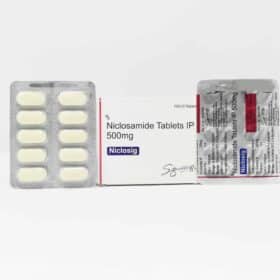

Reviews
There are no reviews yet.